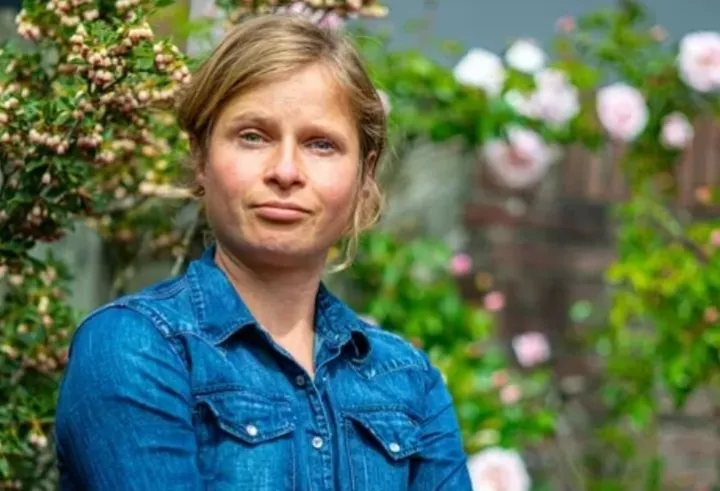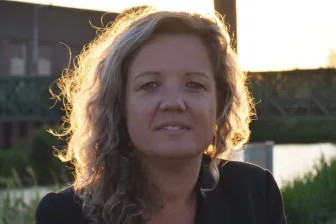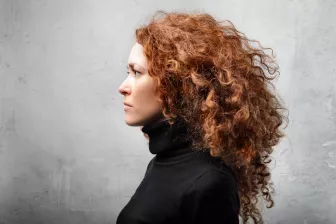Twelve years after athlete Ilonka was raped by her trainer, she met up with him again. A mediator from Perspectief Herstelbemiddeling guided the meeting. “The roles were reversed now. I was able to tell my story, I was in control, and that was a good thing for me.”
“The abuse started when I was sixteen. At the athletics club I was always the trainer’s pet. I had talent and ambition. It went from trainer’s pet, to more and more. In the beginning I didn’t really see anything wrong with it. Until I realized that what he was doing really wasn’t okay. Something like that also doesn’t just happen from one day to the next. First, he gained my trust, and put a lot of trust in me as well. He did everything for me, he accompanied me to the sports doctor, arranged a dietician. He cared about me, that’s what it felt like. I didn’t see anything wrong with it.”
“Until he started making certain remarks. That I had nice breasts. Then a hand would suddenly move to a certain place. It must’ve been by accident. But then when it starts happening more often and more things happen… You’re already so deep into it. You can feel that it’s not okay, but you push that feeling away, you try to downplay it for yourself.”
"I was frozen."
“And regardless, because of the power imbalance, I would do anything he told me. If he had said ‘you’re going to stand on your head for 10 minutes every morning’, I would’ve done it, if it would help me advance as an athlete. It was a pattern for me to never refuse anything from him. I didn’t dare to. I was a teenager and he was in his fifties. This was a dependency relationship, and that made it very easy for him to do his thing. That took quite a long time and went quite far. When I was nineteen, he raped me, near the athletics court during a mountain bike ride. We stopped somewhere, far away from the dirt roads, and there he just raped me. Once again, I followed, and I let it happen. Literally. He didn’t ask me anything and just did what he wanted. I was frozen. I couldn’t think.”
“After it happened, he suddenly felt guilty, and he told his wife about it. The next day, they were both waiting for me to tell me I had to leave the club. He wrote the e-mail about my leave himself. After that, I was not doing well, but for eleven years I bottled up all of my feelings. Until #MeToo happened. My issues came to the surface again, and I ended up at the Center for Sexual Violence (Centrum Seksueel Geweld, CSG). I was put to the test there. To get rid of the guilt and shame I felt, I was given EMDR therapy (again).”
Meet up
“Initially, my therapist proposed to write letters to him, to finally be freed of the guilt and shame. I would write down what I wanted to say to him, but I never sent the letters. Until she came with the idea to meet up with him. The contact was organized through Perspectief Herstelbemiddeling. My therapist thought it would help me to sit in front of him, to look him straight in the eyes, and to tell him in what ways he hurt me. I wasn’t very excited about it at first; I had to think about it. I weighed out the pros and cons, and eventually decided to contact Perspectief Herstelbemiddeling.
“What followed were a few preparation talks with the mediator, so that both of us knew beforehand how the other person felt about it all. After that, there was a meeting. Bizarre. Again. Twelve years after it all happened, I saw the man again. I couldn’t sleep a wink the night before. I had written everything out, gone through all the scenarios about how he might react. I was the first person in the room, he came in later, so that we wouldn’t be in the waiting room together. My husband waited in the car, he was also very nervous. I was very well-prepared, but it was still scary to be in the same room with him again.”
“I wanted to make him understand what he had done to me.”
“The mediator from Perspectief Herstelbemiddeling was present during the meeting. The roles were reversed now. I was able to tell my story, I was in control, and that was a good thing for me. My condition was that he would let me finish speaking. He listened to me, and then told his version of the story. We agreed and signed to keep it all secret, so I’m not allowed to say anything about the content of the meeting. But we both have our own truth. I wanted to make him understand what he had done to me. What a bastard he is. I didn’t want to sit there like a pitiful little creature, and had promised to myself to stay strong. Apart from my moments of anger, I was impressed with myself and how strong I managed to remain.”
“I got a good feeling from the mediation. I am now in control of my own life. He is very scared that I will report him to the police. But fortunately he is no longer a trainer, and he can’t make any more victims in the world of sports.”
“Because I was open about it to others, two people I know told me in confidence about what happened to them regarding sexual abuse. Unfortunately, a lot of people still have the tendency to talk over others, or they might say something like: ‘the third cousin of my neighbor had that happen to her and she ended up in an institution’. It is an indicator of powerlessness and ignorance, often times people just don’t know how to talk about it. That’s why more awareness is necessary about what abuse is and what it looks like, how it works. So that when something like this happens to you, you immediately know that it’s not okay, that it’s not your fault and that you don’t need to be ashamed. And that you have to report it.”
Athletes help athletes
Ilonka has joined the initiative of Renald Majoor to help other athletes that are victims of sexual abuse. She’s one out of four former athletes that were a victim of sexual abuse and registered as a ‘lotgenoot’ (someone who has gone through the same thing as others) to be a sympathetic ear to other victims and listen to their stories. More information about this specific initiative can be found at www.sportershelpensporters.nl.



